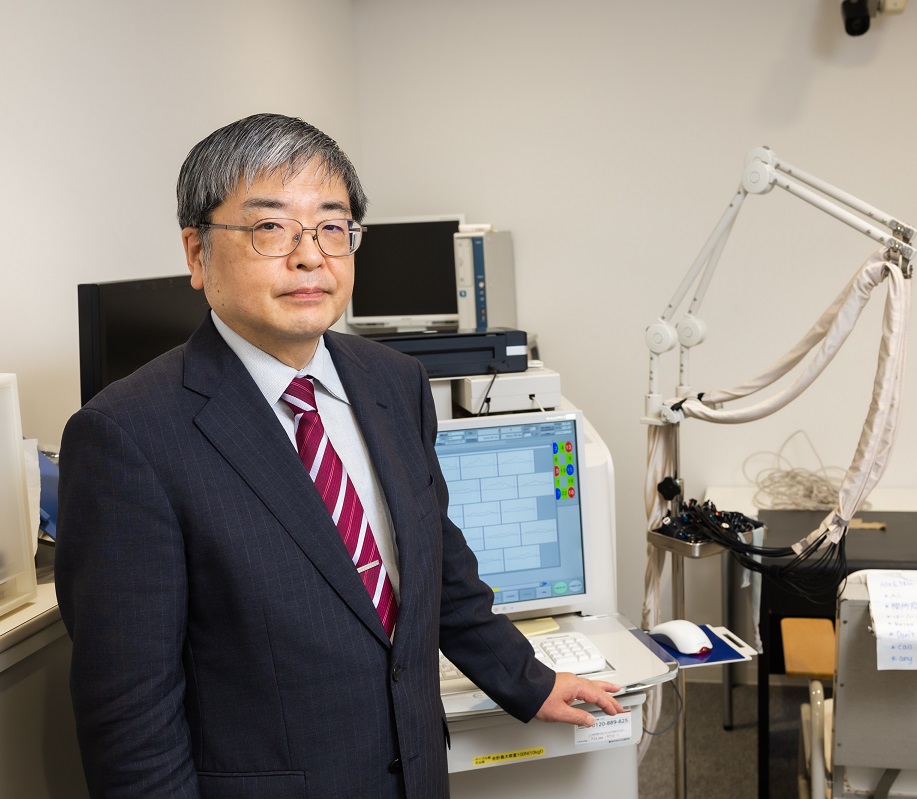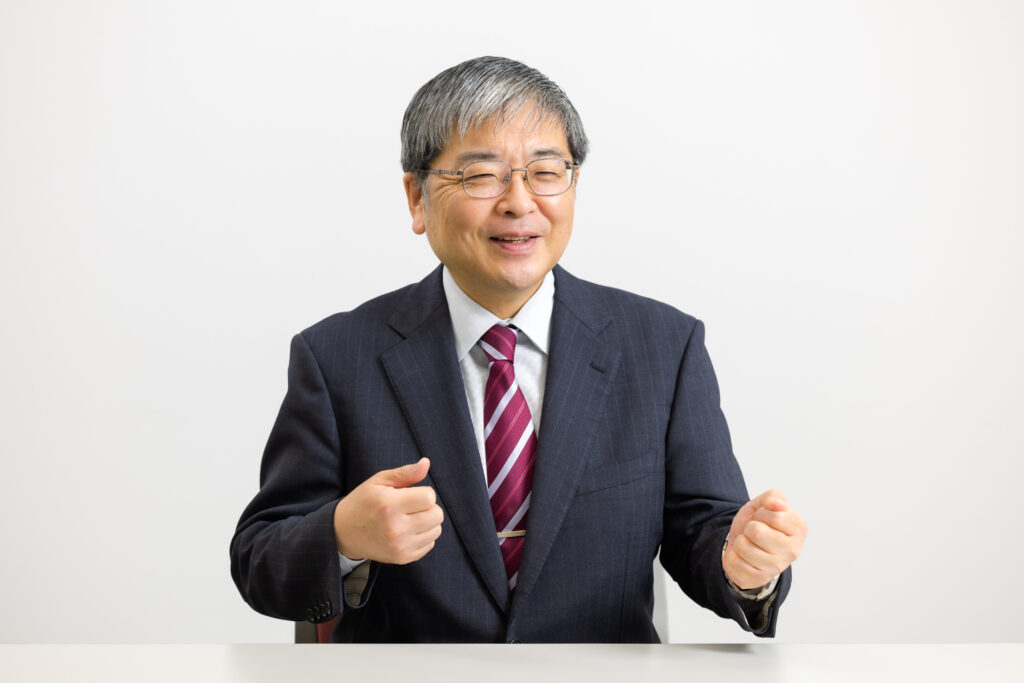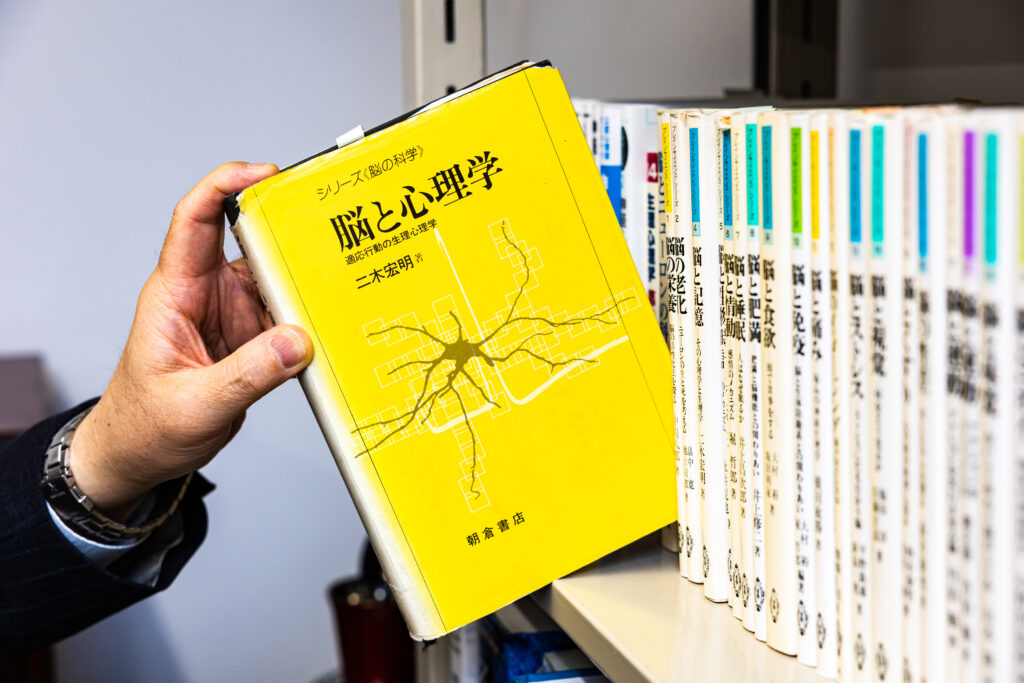
Faculty of Human Sciences Professor Takashi Okada specializes in physiological psychology, which explores the relationship between the body and mind. Specifically, he focuses on the hippocampus in the cerebrum. By uncovering the mechanisms therein through research, he also explores ways to help people suffering from memory disorders.
The academic study of physiological psychology is a field that clarifies the connections between the body and the mind. Having a mind necessarily means having a physical brain. Based on this core premise, I collect data from numerous experiments on how mental functions like the memory and emotions are related to the workings of the brain.
It feels as if our minds are completely under our control, but that is not the actual case. The body and the brain can react reflexively, especially in the case of things like emotions and sentiments, and the relationship between the mind and the brain is a very mysterious one.
Exploring the workings of the brain from the angle of the memory controlling hippocampus

The Sophia University Department of Psychology uses a brain function measuring device called an “NIRS.” This equipment uses near-infrared light, which has a high level of transparency penetration in living organisms. This light reveals blood flow fluctuations, and uses that as a base to measure brain activity.
The equipment maintained at our Department of Psychology is considered rare, and students can use it to freely pursue research into brain movement and activity recording from both the experimenter and subject perspectives.
For example, one graduation thesis research project centered around investigating through experiments the difference in brain activity between an experienced archer (upper year archery club member) and a beginner (first year student) during the action of pulling a bow string.
There is also a student who explores brain activity measurement when musical stimulus that sparks the feeling of “nostalgia” is presented to the experiment subject. At our academic department, physiological psychology research is conducted in a wide array of themes based on the personal interests of our students.
How are learning and memory related to the workings of the brain? In the brain, information processing is controlled by nerve cells. How exactly do they work? And are people aware of this in their actions? This is a research field that is exciting to explore.
Most people know that the hippocampus is an important area in the process of human memory. Hippocampus research is a core theme in my current focus.
One specific research method is applying various stimuli to an approximately 0.3 mm-thick rat hippocampus observed under a microscope and recording the resulting neural activity. By exploring what kinds of stimulus tend to result in neurotransmission when stimulating the hippocampus, I am also conversely clarifying through experimentation what substances can be added to inhibit it.
My future goal is to clarify memory mechanisms and link this to appropriate support for people who are suffering from memory disorders (amnesia). I continue researching in order to propose methods to enhance memory.
Experimenting is paramount, even if the desired results do not occur
My research policy is, “experimentation comes first.” Even at the hypothesis development stage, there are always several things you can only understand by performing experiments. Even if you do not achieve the desired results, it is important to keep experimenting without giving up. Showing results that support a hypothesis is not the only goal. In fact, unexpected results may lead toward other new discoveries.
I believe that in addition to working with theory at the desk, it is important to repeatedly experiment.
Physiological psychology is the process of uncovering each node in the complex network of human mental activities. My hope is for students to experience with me the process of resolving questions through research. Assembling materials, considering methods, researching, and analyzing. This process will be useful in any field in your future.
The book I recommend
“Nou to Shinrigaku (The Brain and Psychology)”
by Hiroaki Niki, Asakura Publishing, Co., Ltd.

This is the textbook I delved into when I took my first physiological psychology class. It links brain activity and psychology and shows how we can learn about them systematically. Also, Niki’s philosophy is the foundation of my own research policy of, “You’ll never know if you don’t try.”
-
Takashi Okada
- Professor
Department of Psychology
Faculty of Human Sciences
- Professor
-
After graduating from the Faculty of Letters at the University of Tokyo, completed the doctorate course at the Graduate School of Humanities there and received his Ph.D. in psychology. After serving as a research associate at the University of Tokyo, a postdoctoral researcher at the University of Oldenburg, a postdoctoral researcher at the Japan Science and Technology Agency, a research associate at Tokyo Medical and Dental University, an Associate Professor at Senshu University, and an Associate Professor at Sophia University, Professor Okada has served in his current position since 2009.
- Department of Psychology
Interviewed: May 2022